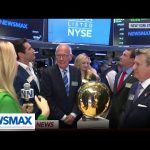Costco’s Kirkland Signature brand is a story of bold business decisions and smart strategy. Back in 1995, Costco took a risk by putting all its store-brand products under one name. Today, Kirkland is a $86 billion giant, beating out big names like Procter & Gamble. This move wasn’t just about saving money. It was about building trust and loyalty with customers who want quality without breaking the bank. Let’s break down how Costco turned Kirkland into its secret weapon.
Costco’s original plan was to use a name like Seattle Signature for its store brand. When that didn’t work out, they named it after their old hometown, Kirkland, Washington. This wasn’t just about geography. By having one brand for everything, Costco saved cash on labels and packaging. That meant lower prices for shoppers. They didn’t cut corners on quality, though. Kirkland items are often made by the same companies that produce name brands. Think Starbucks coffee beans or Duracell batteries with a Kirkland label. Customers get top-tier products without the fancy brand markup.
Other stores like Walmart or Target have dozens of store brands. Costco went the opposite way. One brand for all. This made shopping simpler and built a reputation. When you see that Kirkland logo, you know it’s Costco’s stamp of approval. No guessing games. That trust keeps members coming back. In 2021, nearly a third of Costco’s sales came from Kirkland. That’s more money to invest in keeping prices low across the store.
Suppliers play a big role here. Costco teams up with trusted manufacturers to make Kirkland products. These deals are win-win. Companies get steady bulk orders. Costco gets quality goods cheaper than brands would charge. For example, Kirkland liquor comes from high-end distilleries but costs way less. This strategy lets Costco control costs without sacrificing what matters most – value for the customer.
Not everything is easy. Keeping Kirkland’s quality consistent as they grow is tough. There’s also pressure to keep prices rock-bottom while paying suppliers fairly. Competitors are catching on to the power of private labels too. But Costco’s huge membership base and focus on value give Kirkland an edge. As long as they stick to their core mission – quality at the best price – Kirkland will keep driving Costco’s success.
The Kirkland story shows what happens when a company thinks long-term. Costco bet on one brand instead of chasing trends. They built partnerships that benefit both suppliers and shoppers. In a world where every dollar counts, Kirkland proves that simple, consistent value wins every time.




